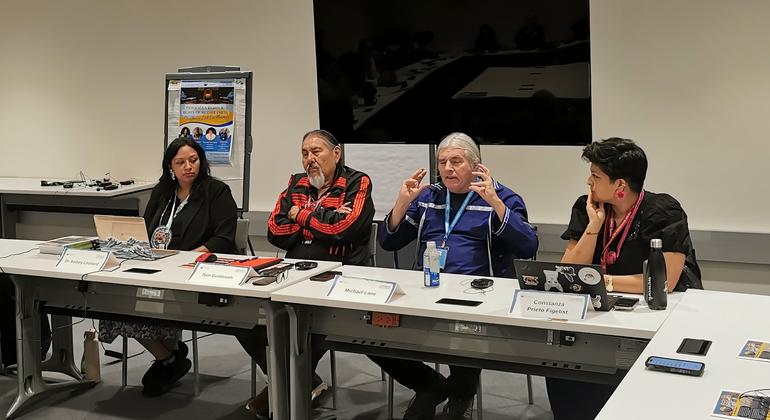Sure! Here’s the translation into American English:
—
Within the framework of the Permanent Forum on Indigenous Issues, held at the United Nations headquarters in New York, a topic of growing relevance was addressed: the rights of nature. The legal director for Latin America at the Earth Law Center, Constanza Prieto, highlighted the fundamental difference between the rights of nature and traditional environmental regulations. According to Prieto, while the conventional approach treats nature as a resource that can be exploited up to a limit, the rights of nature view it as a subject with dignity that deserves respect and protection in its own right.
Prieto underscored the urgency of establishing legislation that promotes respect for natural limits and protects ecosystems, which could lead to transformative change for both humanity and the planet. In this regard, Dr. Kelsey Leonard, an expert in Nature’s Rights from the University of Waterloo, described this new perspective as a tree with multiple branches that includes not only the rights of nature but also the rights of animals and indigenous rights.
During her intervention, Prieto addressed the concept of ecocide, which involves the criminalization of the mass destruction of ecosystems, and emphasized that the rights of nature are intrinsically linked to the rights of indigenous peoples. These peoples, who have historically been the guardians of nature, depend on it for their culture, identity, and livelihoods.
An example highlighted by Prieto was the Marañón River in Peru, where women from the Kukama indigenous community succeeded, after two decades of struggle, in having the state recognize the rights of the river and designate these communities as its guardians. This recognition occurred in response to the impact on the ecosystem and the community’s self-determination following oil spills in the area.
Cultural mentality is another crucial aspect for ensuring adequate protection of nature. Prieto insisted that if individuals value their connection to the environment, they will be more inclined to protect it. In Ecuador, 90% of cases related to the rights of nature are promoted by civil society, a significant contrast to other countries like Bolivia, where social mobilization is weak.
Prieto advocated for greater visibility of local issues in international spaces, arguing that this allows communities to be heard and generates pressure on states to comply with laws regarding nature. Ultimately, she concluded that it is essential for communities to amplify their voice at the international level to promote meaningful changes in the protection of nature and its associated rights.
via: MiMub in Spanish










